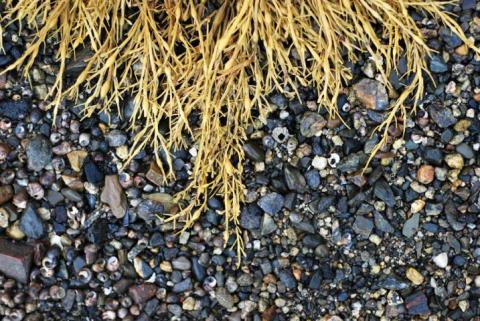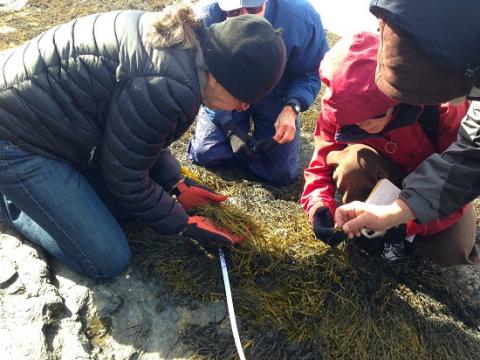
What is Phenology Monitoring?
Your day-to-day observations of nature can contribute to citizen science! Plant and animal life stages that occur in an annual cycle, in rhythm with the changing seasons, are called phenophases. Phenology is the study of the timing of these changes. Scientists have found that phenological changes are some of the most sensitive indicators of local effects of global climate change. Monitoring these changes can provide knowledge of how species respond to climate change and can help predict future changes to better prepare ourselves and our environment for the changing climate.
The challenge is that long-term data on phenophases can take a lot of time and effort to collect. In fact, it is nearly impossible to gather many types of phenology data without the help of citizen scientists - so the work you do is very important!
Rockweed, or knotted rack, is an especially important species to monitor. Observing rockweed throughout its seasonal reproductive cycle can provide a lot of information about water quality conditions during the rockweed’s life. CRV works with Maine Sea Grant's Coastal Signs of the Seasons program to equip volunteers to contribute important data about seasonal changes in rockweed throughout the spring and summer.
What do rockweed phenology monitors do?
Rockweed monitors attend a two-hour training. After that, they will be responsible for taking weekly observations of rockweed at one coastal location throughout the late spring and early summer. They will upload their observations into an online database. CRV will provide all needed materials and training.
Our partners at Maine Sea Grant have been monitoring rockweed phenology through the Coastal Signs of the Seasons program for many years. Data collected each week by volunteers about seasonal changes in this coastal algae are used in Maine Maritime Academy's Dr. Jessie Muhlin's extensive research on marine macroalgaes. This type of multi-year database is essential for study of phenology, but hard to obtain because it requires many years of data collection - it couldn’t be done without volunteers like you!
Watch Dr. Muhlin share some of the big impact that volunteer data has had on her research in this great and informative webinar.
- Interest in visiting the coastline approximately once every two weeks and taking observations
- Ability to upload data on a computer after completing observations
- Learn about, visit, and contribute to knowledge of the local coastline
- Contribute to a long-term phenological dataset
Join our rockweed phenology monitoring efforts!
The spring/summer 2018 rockweed monitoring season has wrapped up. Sign up for our monthly email newsletter to learn about upcoming trainings in spring 2019, and contact Wells if you'd like to learn how to be involved!
Links, resources, and partner organizations
You can read all about the rockweed phenology program conducted by our partners at Maine Sea Grant, and learn more about nationwide citizen science phenology monitoring by browsing the National Phenology Network website. Finally, check out this article about rockweed monitoring on the Gundalow Company blog, written by one of our own Coastal Research Volunteers.

